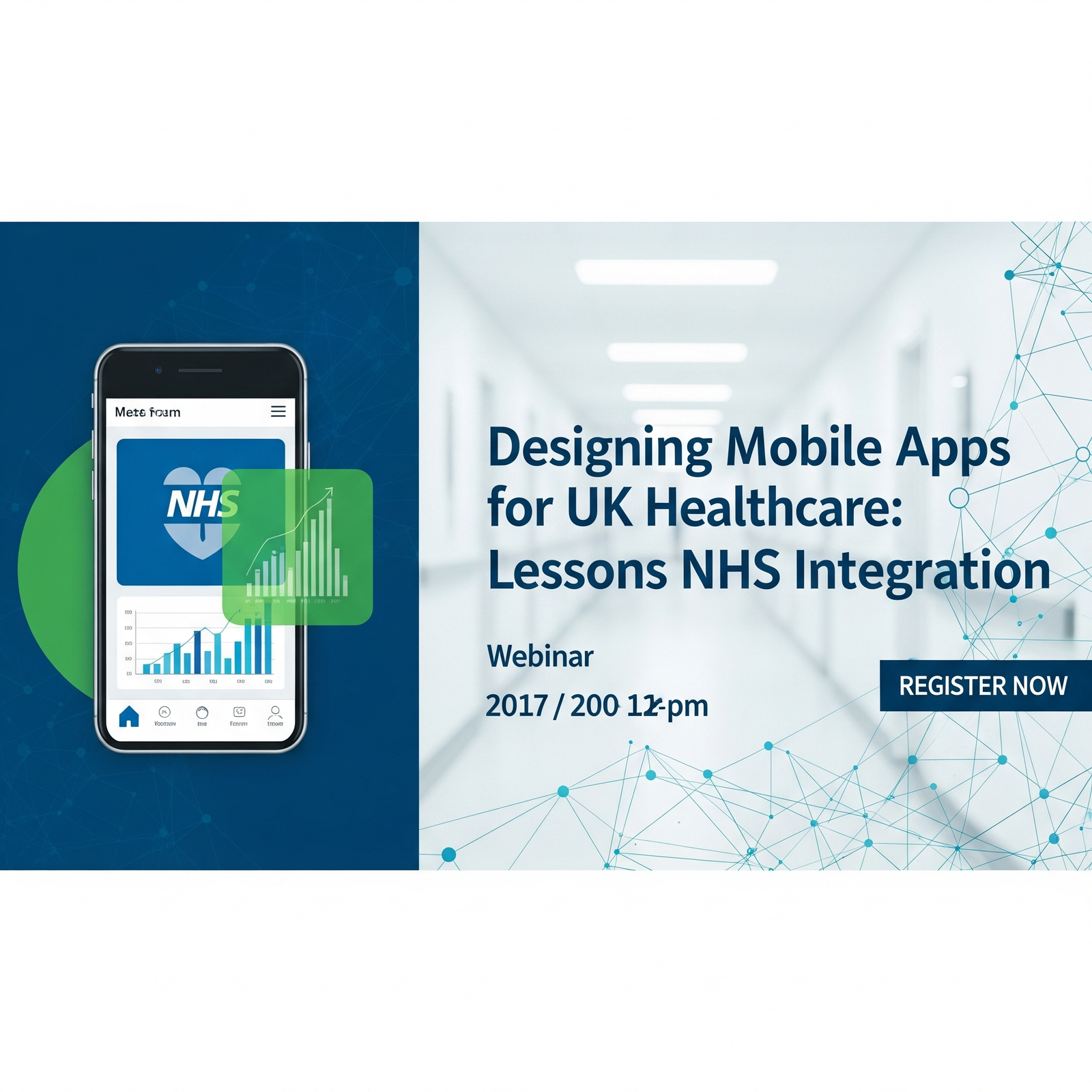Introduction
Healthcare is undergoing a digital transformation, and mobile apps are at the center of this shift. In the UK, the National Health Service (NHS) has led various digital initiatives that have changed how patients and providers interact. Designing mobile apps that integrate with NHS systems comes with unique challenges—and important lessons.
For businesses and developers looking to create robust, compliant, and user-centric health solutions, these insights are crucial. Whether you’re a mobile app development company or a healthcare startup, understanding NHS integration will give you a competitive edge.
The Importance of NHS Integration
The NHS is not just a healthcare provider; it’s an ecosystem. It involves general practitioners, hospitals, diagnostic services, mental health professionals, and more. Developing a mobile app for this ecosystem means:
-
Ensuring interoperability with NHS systems like Spine, GP Connect, and NHS Login
-
Adhering to strict data protection laws such as the UK GDPR
-
Building trust with end users, including patients and clinicians
Apps that don’t meet these standards will struggle to gain traction or approval, especially if they aim to be listed in the NHS App Library.
Key Lessons from NHS-Integrated Apps
Let’s explore what app developers can learn from successful NHS-integrated mobile apps.
1. Prioritize Patient Data Privacy
Privacy is non-negotiable. Any app handling health data must be compliant with the UK General Data Protection Regulation (GDPR). This includes:
-
Implementing end-to-end encryption
-
Offering clear privacy policies
-
Allowing users control over their data
Apps like the NHS COVID-19 app set a gold standard for data anonymization and transparency, showing how privacy can boost public trust and adoption.
2. Use Open Standards and APIs
To integrate smoothly with NHS systems, developers should use open healthcare standards such as FHIR (Fast Healthcare Interoperability Resources) and HL7. This ensures seamless data exchange and reduces time to approval.
The NHS encourages developers to use NHS Digital’s APIs such as:
-
NHS Login API (for identity verification)
-
GP Connect API (for real-time patient data access)
This is where expert support from a seasoned mobile app development company can make a major difference.
3. Design for Accessibility and Inclusivity
A healthcare app in the UK must serve a diverse population, including the elderly and people with disabilities. Key practices include:
-
High-contrast text and scalable fonts
-
Screen reader compatibility
-
Simple navigation with large tap targets
Apps that are difficult to use or inaccessible risk alienating users—and failing NHS usability standards.
4. Iterative Testing with Clinicians and Patients
Too many apps fail because they are built in isolation. Successful healthcare apps are co-designed with end users—patients, doctors, and NHS staff.
For example, the MyCOPD app, which helps patients manage chronic obstructive pulmonary disease, was developed with both clinicians and patients involved in the testing phase. This collaborative approach leads to higher user satisfaction and better outcomes.
5. Plan for Security from Day One
Cybersecurity is critical. Healthcare data is a top target for cyberattacks. NHS Digital provides guidelines to help developers assess and manage app security risks.
Common security practices include:
-
Penetration testing
-
Role-based access controls
-
Regular security updates
This proactive approach not only protects users but also ensures long-term app stability.
Common Mistakes to Avoid
Despite the clear guidance, many healthcare apps still make avoidable mistakes, such as:
-
Using closed, proprietary data formats
-
Ignoring user feedback after launch
-
Relying on outdated encryption protocols
-
Failing to plan for NHS Digital’s approval process
These issues can delay deployment and increase costs. Working with a mobile app development expert with NHS experience can help avoid these pitfalls.
Future Trends in UK Healthcare Apps
As NHS evolves, mobile apps will play a bigger role in remote monitoring, AI-driven diagnostics, and personalized medicine. Key future trends include:
-
5G and IoT: Connecting devices like wearables for real-time health updates
-
AI and ML: Predictive algorithms for early disease detection
-
Voice-enabled apps: Making health services more accessible to people with limited tech literacy
App developers must stay ahead of these trends while continuing to meet NHS standards.
Final Thoughts
Designing mobile apps for UK healthcare is both challenging and rewarding. By aligning your strategy with NHS integration requirements, you can build apps that not only comply with regulations but also make a real impact in patients’ lives.
If you’re planning to develop a healthcare app, collaborating with a mobile app development company experienced in NHS systems can help you avoid costly missteps and speed up your time to market.
